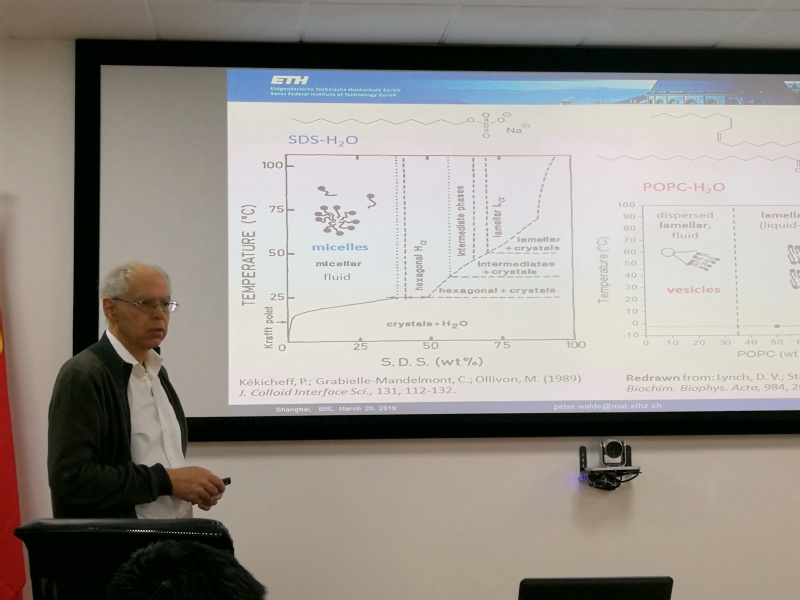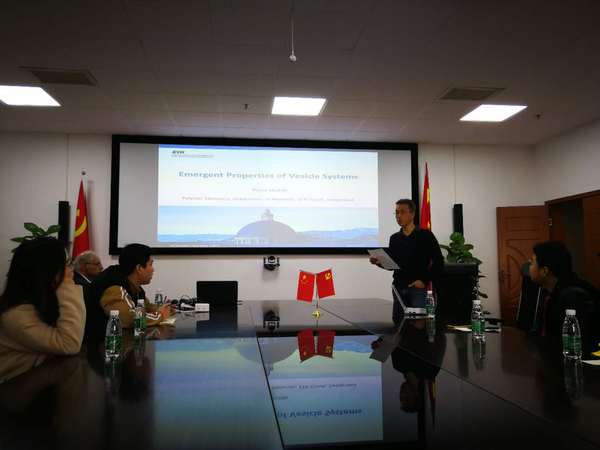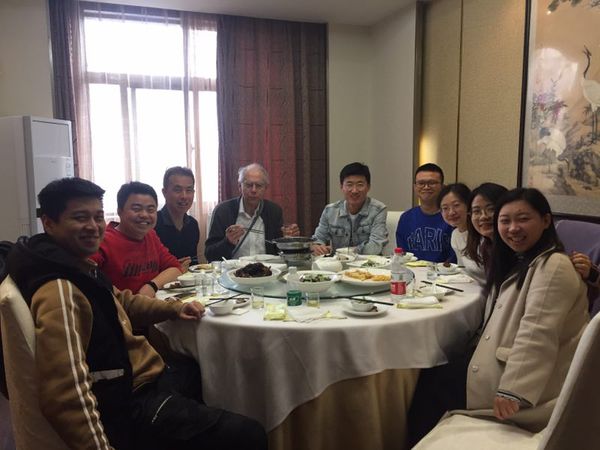

Today, we have a respected guest Prof. Peter Walde from Department of Materials, ETH Zurich (QS No.7 in 2019). His research interest is mainly on enzymatic reactions with vesicles as templates and compartments, and conjugations between dendronized polymers and enzymes.
Invited by Prof. Yomo, Prof. Walde visited our lab, meet with our members and then gave a detailed, wonderful report on Emergent Properties of Vesicle Systems.

The abstract of the report is as follows:
Micelles and vesicles formed from amphiphiles in aqueous solution have properties which emerge from the assembly of the amphiphiles [1]. Compared to micelles with their hydrophobic interior, vesicles have an aqueous internal volume which is separated from the bulk aqueous solution by a semi-permeable membrane formed by the amphiphiles. Since this compartment property is one of the key features of all biological cells, vesicular structures may have played important roles as protocellular precursor systems of the first cells at the origin of life. In terms of applications, vesicles from amphiphilic lipids (liposomes) are investigated for pharmaceutical applications, e.g. as drug delivery systems. Less studied are vesicles as additives for promoting chemical reactions in aqueous media [2]. In this case, the soft and dynamic vesicle membrane provides a reaction environment which differs from the bulk aqueous solution and with this may alter reaction kinetics and reaction pathways.
[1] Walde, P.; Umakoshi, H.; Stano, P.; Mavelli, F. (2014) Chem. Commun. 50, 10177-10197.
[2] Serrano-Luginbühl, S.; Ruiz-Mirazo, K.; Ostaszewski, R.; Gallou, F.; Walde, P. (2018) Nat. Rev. Chem. 2, 306-327.
Dr. Zhang, postdoc at Shanghai Jiaotong University, who studied one year in Prof. Walde's lab, also was invited to attend.
Prof. Yomo and other audience raised questions to Prof. Walde.

The scientific discussion keeps on during our group lunch.

